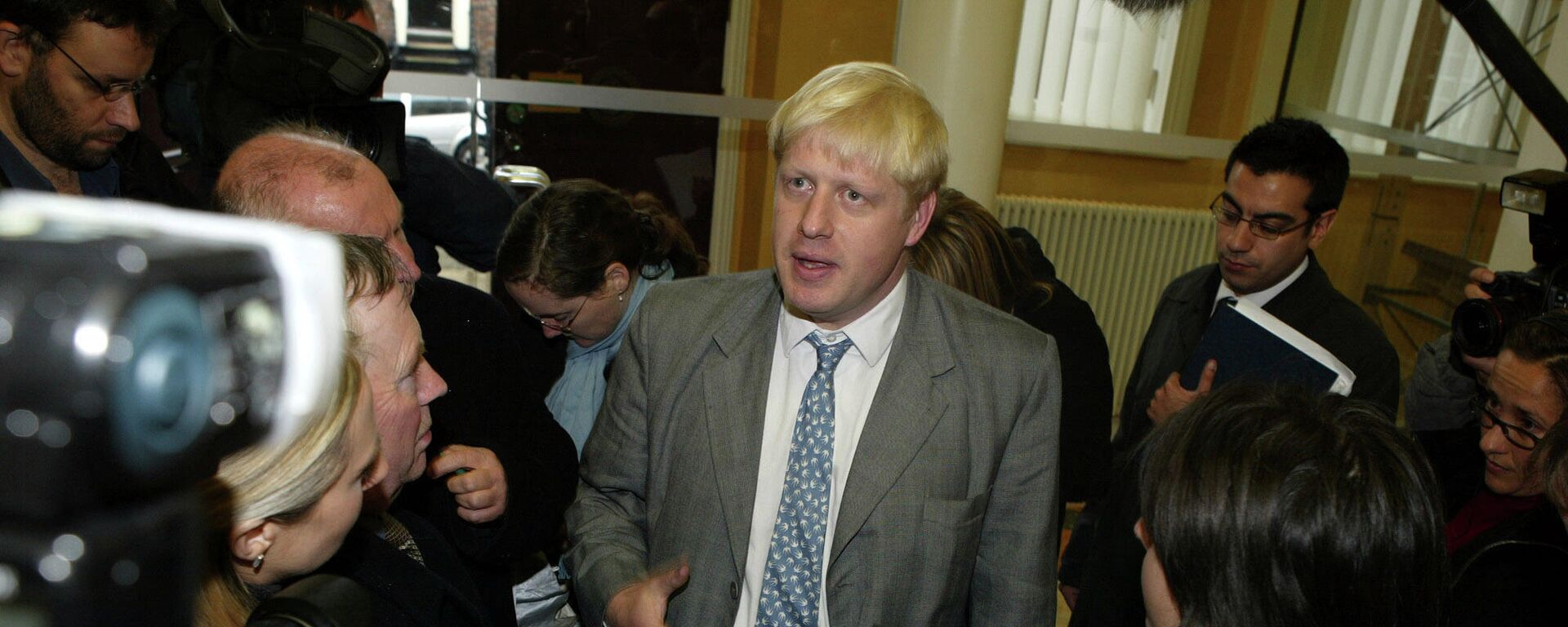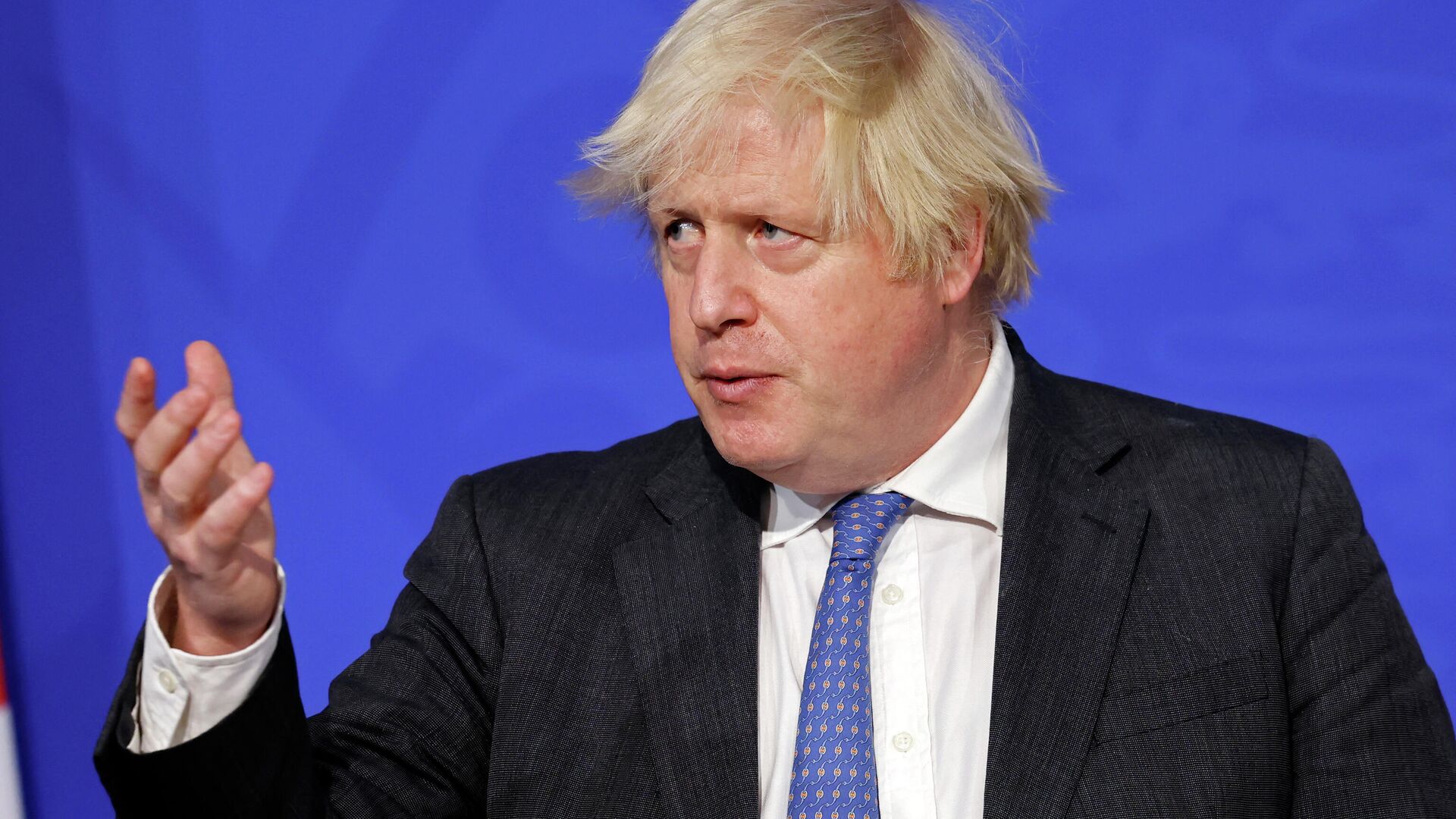https://sputnikglobe.com/20220101/job-isnt-finished-bojo-vows-to-go-further-and-faster-to-build-on-brexit-advantages-in-2022-1091961996.html
'Job Isn't Finished': BoJo Vows to Go 'Further and Faster' to Build on Brexit Advantages in 2022
'Job Isn't Finished': BoJo Vows to Go 'Further and Faster' to Build on Brexit Advantages in 2022
Sputnik International
UK Prime Minister Boris Johnson has vowed to go “further and faster” in 2022 to capitalize on the plethora of advantages offered by Brexit.
2022-01-01T12:40+0000
2022-01-01T12:40+0000
2023-05-28T15:17+0000
boris johnson
brexit
european union (eu)
united kingdom (uk)
https://cdn1.img.sputnikglobe.com/img/07e5/0c/14/1091658586_0:160:3073:1888_1920x0_80_0_0_b13f8b5e746fe545ac3b273f684bf159.jpg
UK Prime Minister Boris Johnson has vowed to go “further and faster” in 2022 to capitalise on the plethora of advantages offered by Brexit.Hailing the world’s biggest “zero-tariff, zero-quota free trade deal”, he underscored, on the first anniversary of the landmark Brexit Trade and Cooperation Agreement (TCA):TCA, setting out the future relationship between the UK and the European Union came into force on 1 January 2021, allowing businesses in Britain to trade with Europe while seeking out trading opportunities with countries around the world.According to Johnson, since the agreement was signed, the government had cut “red tape for businesses, reforming EU rules and regulations and boosting trade abroad to create new jobs here in the UK.”Singled out as key successes were the promised replacement of freedom of movement with a “points-based immigration system”; securing the COVID-19 vaccine rollout; new free trade deals “from Switzerland to Singapore” with over 70 countries, worth over £760 billion. Landmark deals with Australia and New Zealand were touted as paving the way for the UK’s “entry to the £9 trillion Comprehensive and Progressive Agreement for Trans-Pacific Partnership.”‘Prioritise Flow Over Compliance’As full post-Brexit customs controls are finally being slapped on imports between the EU and Great Britain, except from Ireland, as of 1 January, UK business leaders have warned that the increased red tape could exacerbate the supply chain crisis. The checks had been already delayed several times, with the need for full customs declarations and controls pushed back to 1 January 2022 to avoid compounding problems stemming from the COVID-19 pandemic and a shortage of truck drivers ahead of the festive Christmas season.Firms on both sides of the English Channel must now fill out more complex paperwork to bring goods from the continent. Previously, UK companies had up to 175 days to fill in customs declarations. Now, they will be required to do so “at the point of import”, and also obtain “rules of origin” declarations. The UK’s deal with the EU means that goods may benefit from a reduced Customs Duty rate (tariff preference), if you have proof the aforesaid goods you import from the EU originate there, and exports to the EU originated in the UK.Any EU firm sending animal or food products to Britain must “pre-notify” the UK authorities with 24 hours’ notice.BCC Head of Trade Policy William Bain was cited by the Mirror as warning that if firms fail to “pre-notify” exports to UK, “we may see some consignments stuck at ports in the EU, and not coming over to stores and distribution centres in Great Britain”. However, he allayed fears, saying there was “no evidence there’s going to be any shortages”.The Confederation of British Industry was cited by the Daily Mail as saying:As of 1 July 2022, further changes will be introduced, including requirements for full safety and security declarations for all imports; new requirements for Export Health Certificates; requirements for Phytosanitary Certificates and physical checks on sanitary and phytosanitary goods at Border Control Posts.
https://sputnikglobe.com/20211229/declassified-docs-reveal-irish-diplomat-said-boris-johnson-had-naive-views-of-northern-ireland-1091885573.html
https://sputnikglobe.com/20211124/no-christmas-booze-for-brits-businesses-weary-of-delivery-chaos--lack-of-drivers-1090987042.html
united kingdom (uk)
Sputnik International
feedback@sputniknews.com
+74956456601
MIA „Rosiya Segodnya“
2022
News
en_EN
Sputnik International
feedback@sputniknews.com
+74956456601
MIA „Rosiya Segodnya“
Sputnik International
feedback@sputniknews.com
+74956456601
MIA „Rosiya Segodnya“
boris johnson brexit
'Job Isn't Finished': BoJo Vows to Go 'Further and Faster' to Build on Brexit Advantages in 2022
12:40 GMT 01.01.2022 (Updated: 15:17 GMT 28.05.2023) Britain exited the EU's single market at the beginning of 2021, with the move bringing with it mandatory checks on goods and extra paperwork. However, the UK delayed the implementation of some post-Brexit import controls thrice, saying it would phase in checks through 2022 to avoid undue stress on industry supply chains.
UK Prime Minister Boris Johnson
has vowed to go “further and faster” in 2022 to capitalise on the plethora of advantages offered by Brexit.
Hailing the world’s biggest “zero-tariff, zero-quota free trade deal”, he underscored, on the first anniversary of the landmark Brexit Trade and Cooperation Agreement (TCA):
“The job isn’t finished and we must keep up the momentum. In the year ahead my government will go further and faster to deliver on the promise of Brexit.”
TCA, setting out the future relationship between the UK and the European Union came into force on 1 January 2021, allowing businesses in Britain to trade with Europe while seeking out trading opportunities with countries around the world.
According to Johnson, since the agreement was signed, the government had cut “red tape for businesses, reforming EU rules and regulations and boosting trade abroad to create new jobs here in the UK.”

29 December 2021, 12:46 GMT
Singled out as key successes were the promised replacement of freedom of movement with a “points-based immigration system”; securing the
COVID-19 vaccine rollout; new free trade deals “from Switzerland to Singapore” with over 70 countries, worth over £760 billion. Landmark deals with Australia and New Zealand were touted as paving the way for the UK’s “entry to the £9 trillion Comprehensive and Progressive Agreement for Trans-Pacific Partnership.”
‘Prioritise Flow Over Compliance’
As full post-Brexit customs controls are finally
being slapped on imports between the EU and Great Britain, except from Ireland, as of 1 January, UK business leaders have warned that the increased red tape could exacerbate the supply chain crisis. The checks had been already delayed several times, with the need for full customs declarations and controls pushed back to 1 January 2022 to avoid compounding problems stemming from the COVID-19 pandemic and a shortage of truck drivers ahead of the festive Christmas season.

24 November 2021, 13:12 GMT
Firms on both sides of the English Channel must now fill out more complex paperwork to bring goods from the continent. Previously, UK companies had up to 175 days to fill in customs declarations. Now, they will be required to do so “at the point of import”, and also obtain “rules of origin” declarations.
The UK’s deal with the EU means that goods may benefit from a reduced Customs Duty rate (tariff preference), if you have proof the aforesaid goods you import from the EU originate there, and exports to the EU originated in the UK.
Any EU firm sending animal or food products to Britain must “pre-notify” the UK authorities with 24 hours’ notice.
BCC Head of Trade Policy William Bain was cited by the Mirror as warning that if firms fail to “pre-notify” exports to UK, “we may see some consignments stuck at ports in the EU, and not coming over to stores and distribution centres in Great Britain”. However, he allayed fears, saying there was “no evidence there’s going to be any shortages”.
The Confederation of British Industry was cited by the Daily Mail as saying:
“The main concern will be around impacts on food supply chains ... The Government must prioritise flow over compliance in the short-term to reduce the pressure.”
As of 1 July 2022,
further changes will be introduced, including requirements for full safety and security declarations for all imports; new requirements for Export Health Certificates; requirements for Phytosanitary Certificates and physical checks on sanitary and phytosanitary goods at Border Control Posts.





